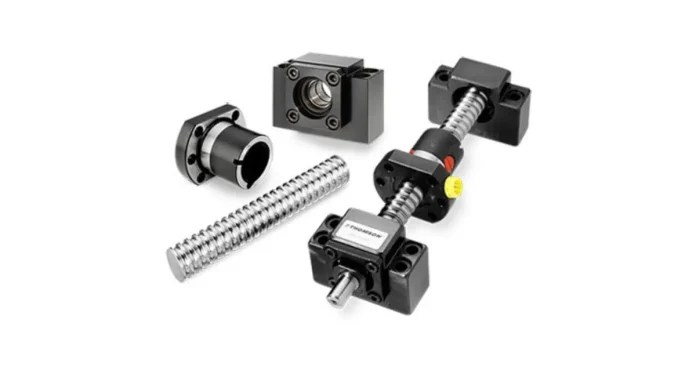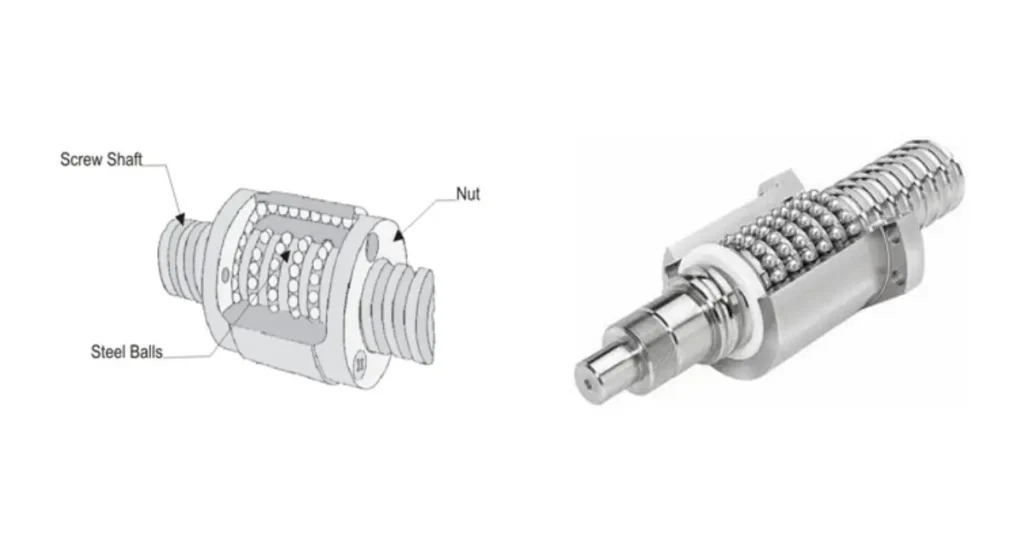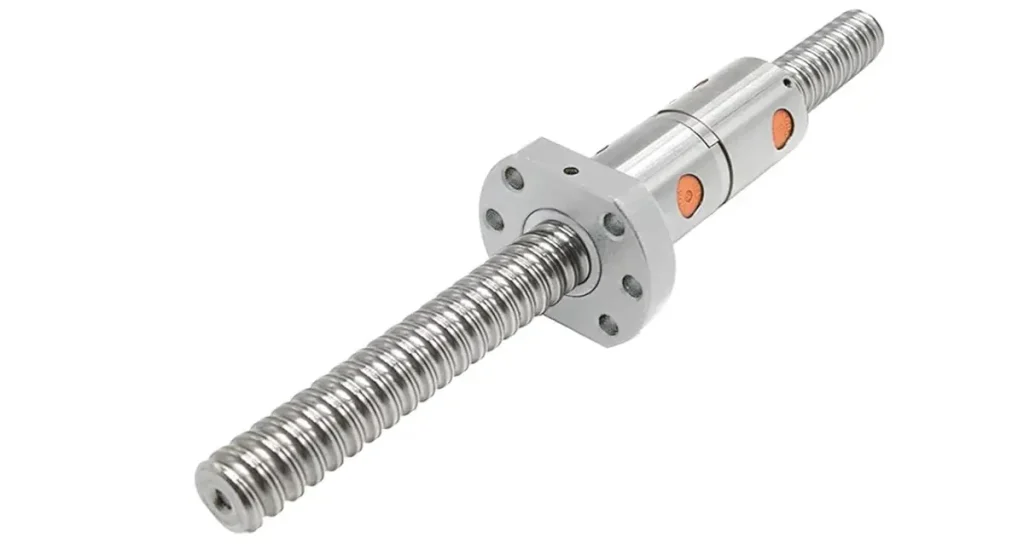
Choosing the right material for a ball screw nut is crucial. It affects performance, durability, and efficiency.
Different materials offer varied benefits and drawbacks. Some enhance strength, while others reduce friction. This blog post explores how material choice impacts ball screw nut performance.
We will look at common materials used, their advantages, and disadvantages. Understanding these factors can help in making better decisions for your needs. Stay tuned as we dive into the details.
Common Materials Used for Ball Screw Nuts
The most commonly used materials for ball and screw nuts are steel, bronze, and plastic. Each of these materials has unique characteristics that make them suitable for different applications.
Steel
Steel is the most popular material used in ball screw nuts. This is due to its high strength and durability. It can withstand heavy loads and high temperatures, making it ideal for industrial machinery and equipment.
However, steel has a lower resistance to corrosion compared to other materials like bronze or plastics. This can lead to premature wear and tear if not properly maintained.
Bronze
Bronze is another common material used in ball and screw nuts. It has a lower coefficient of friction compared to steel. This makes it ideal for high-speed applications where heat generation is a concern.
Additionally, bronze has excellent corrosion resistance. This makes it suitable for use in humid or corrosive environments. However, it may not be as strong as steel and may deform under heavy loads.
Plastics
Plastic materials such as acetal and nylon are also used in ball and screw nuts. They offer low friction and self-lubrication properties. They are suitable for applications that require smooth and quiet operation.
Plastics are also lightweight and have good corrosion resistance. However, they may not be as strong as steel or bronze and may deform under heavy loads.

Impact on Performance
The material used for the ball screw nut has a significant impact on its performance. Let’s take a closer look at how different materials affect various aspects of performance.
Strength
Strength is a key factor in ball and screw nut performance. It determines how well the nut can handle heavy loads. As mentioned earlier, steel is known for its high strength, making it suitable for heavy-duty applications.
Bronze provides good strength, but not as much as steel. It is strong enough for most applications though. However, it may deform if subjected to very heavy loads.
Plastic nuts are the weakest of the three materials. They can handle light to moderate loads well. For heavy loads, steel or bronze is a better choice.
Friction
The friction coefficient of the material affects the efficiency of the ball screw nut. Lower friction means smoother and faster movement. This can make machines run better and use less energy.
Different materials have different levels of friction. Steel has higher friction, which can slow things down. Bronze and plastic materials offer lower coefficients of friction compared to steel.
When friction is too high, parts wear out faster. Less friction means less wear. This leads to longer-lasting parts and machines.
Durability
Durability is an important factor when choosing materials for ball screw nuts. Steel is known for its long-lasting nature, but it needs good maintenance to prevent rusting. Bronze also offers good durability and is less likely to rust than steel.
Plastic materials can last a long time if used in the right conditions. They are not as tough as steel or bronze but can work well for light tasks. Proper use and care can extend their lifespan.
Each material’s durability depends on its use and maintenance. For heavy tasks, steel is often the best. Bronze and plastic are better for lighter or special conditions.
Compatibility
When selecting a ball screw nut, consider its compatibility with linear motion bearings. This ensures smooth operation and prevents mechanical issues. Using the wrong material can lead to poor performance.
Different materials pair better with specific linear motion bearings. Steel nuts work well with most bearing types due to their strength. Bronze and plastic nuts may require special bearings for optimal function.
Think about the working environment too. Humid conditions might favor bronze due to its rust resistance. For quieter operations, plastic nuts with compatible bearings are ideal. Matching materials and conditions improves overall efficiency.
Thermal Stability
Thermal stability is important when selecting a ball screw nut material. Materials need to perform well under different temperatures. This ensures the machinery runs smoothly.
Steel ball screw nuts are great for high temperatures. They do not lose their strength or shape easily. So, they are perfect for heavy industrial use.
Plastic ball and screw nuts can only handle low to moderate heat. They might soften or deform if it gets too hot. Always check the working temperature range before choosing your material.

Choosing the Right Material
When deciding on the material for your ball screw nut, it’s essential to consider your specific needs and requirements. Some factors to consider include:
Load Capacity
Consider the load capacity of your application. If you need to handle heavy loads, then steel or bronze would be a better choice.
Speed Requirements
For high-speed applications, materials with lower coefficients of friction like bronze are more suitable. This helps reduce heat generation and overuse.
Environmental Conditions
If your application is exposed to harsh environments, consider a material with good corrosion resistance like bronze. For humid conditions, plastic may be a better option.
Maintenance Needs
Different materials require different levels of maintenance. Steel may need more regular maintenance to prevent rusting, while bronze and plastic may require less upkeep.
Availability and Cost
Materials like steel may be more readily available and hence cheaper compared to bronze or plastics. Consider the cost and availability of materials when making your decision.
Wrapping Up: Selecting the Ideal Ball Screw Nut
In conclusion, selecting the ideal ball screw nut is vital for optimal performance and longevity of your machinery. Carefully evaluate factors like load capacity, speed requirements, environmental conditions, and maintenance needs. Each material-steel, bronze, or plastic-offers unique advantages and disadvantages, so consider your specific application needs.
By making an informed choice, you can significantly enhance the efficiency and durability of your ball and screw nut, ensuring seamless and reliable operations.
Did this article help you? If so, take a look at some of our other blog posts for more informative reads.
FURTHER READING









